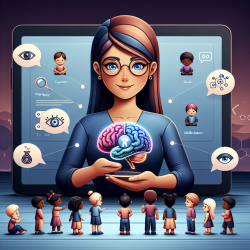Introduction
The digital age presents both opportunities and challenges for youth in foster care. A recent systematic review titled A Systematic Review of Internet Communication Technology Use by Youth in Foster Care sheds light on the potential benefits and risks associated with Internet Communication Technologies (ICTs) for these vulnerable populations. This review emphasizes the voices of foster youth, providing valuable insights for practitioners aiming to enhance outcomes through data-driven strategies.
The Role of ICTs in Foster Care
ICTs, encompassing smartphones, social media, and other digital tools, are pivotal in maintaining connections and fostering identity formation among youth. Despite their potential, foster care systems often restrict ICT use due to perceived risks. However, the review highlights that ICTs can significantly contribute to positive youth development (PYD) by supporting relationships, identity exploration, and resilience.
Benefits of ICT Use
- Maintaining Connections: Foster youth often use ICTs to stay connected with friends and family, crucial for emotional support and stability.
- Identity Formation: ICTs provide a platform for self-expression and identity exploration, allowing youth to shape their narratives beyond their foster care status.
- Access to Resources: Social media and other digital platforms offer access to educational and vocational resources, enhancing competence and confidence.
Risks and Challenges
While ICTs offer numerous benefits, they also pose risks such as cyberbullying, online exploitation, and privacy concerns. The review underscores the importance of balanced approaches that mitigate these risks while maximizing the benefits of ICT use.
Implementing Positive Youth Development (PYD) Framework
The PYD framework, focusing on the five "Cs"—competence, caring, connection, character, and confidence—offers a robust approach to leveraging ICTs for foster youth development. Practitioners can implement strategies that enhance these capacities, fostering resilience and positive outcomes.
Practical Implications for Practitioners
Practitioners are encouraged to integrate ICT literacy into their programs, focusing on:
- Education: Providing training on safe and effective ICT use.
- Support: Offering guidance and support in navigating online risks.
- Policy Advocacy: Advocating for policies that support ICT access and use for foster youth.
Conclusion
ICTs hold transformative potential for foster youth, offering tools for connection, growth, and empowerment. By embracing a balanced, data-driven approach, practitioners can unlock these benefits, paving the way for healthier, more resilient youth. To delve deeper into the research, read the original research paper.










